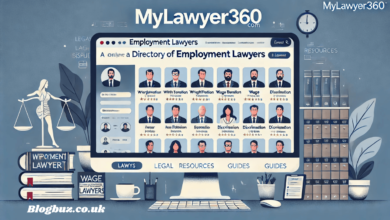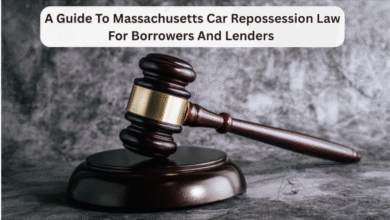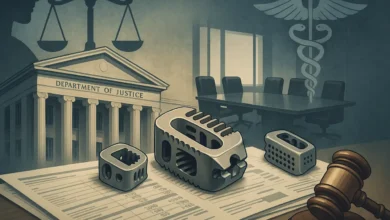Zoning and Land Use Challenges in San Antonio: How a Lawyer Can Help

Zoning laws and land use regulations in San Antonio can quickly become roadblocks for homeowners, business owners, and developers. Whether you’re trying to renovate a commercial building, build a new multi-family property, or convert your home into a short-term rental, you’ll likely need to deal with city ordinances, zoning maps, public hearings, and permit applications. These regulations are complex—and one misstep could delay your project or derail it entirely.
This is where a real estate attorney San Antonio property owners trust can step in. A skilled lawyer helps you understand the zoning code, represent your interests before local boards, and protect your investment. Here’s a closer look at common zoning and land use issues in San Antonio and how a real estate attorney can guide you through them.
What Is Zoning and Land Use Law?
Zoning and land use laws determine how property can be used within the city. San Antonio is divided into different zoning districts—such as residential, commercial, industrial, and agricultural—with each having its own permitted uses, density limits, height restrictions, and setback requirements.
For example:
- Residential zones may prohibit multi-unit housing or short-term rentals.
- Commercial zones may have specific parking, signage, or environmental restrictions.
- Overlay districts (like historic or corridor overlays) impose additional rules on top of base zoning.
The City of San Antonio also has a Unified Development Code (UDC), which governs everything from building permits to landscaping requirements. Violating these rules—even unknowingly—can lead to costly fines, stop-work orders, or denial of permits.
Common Zoning Challenges in San Antonio
Even experienced developers and property owners can run into problems. Here are some of the most common zoning and land use challenges seen in the San Antonio area:
1. Rezoning Requests
If your project doesn’t comply with the existing zoning, you may need to request a zoning change. This requires filing a rezoning application, attending public hearings, and persuading the Zoning Commission and City Council to approve your request. A single objection from a neighbor or failure to comply with notice requirements can stall the process.
2. Variances and Special Exceptions
If your project only slightly conflicts with zoning rules (such as a minor height or setback issue), you may apply for a variance or special exception through the Board of Adjustment (BOA). These are discretionary approvals, meaning the board has full authority to approve or deny your request based on hardship and neighborhood impact.
3. Permitting Delays
Even after getting the right zoning, your project might hit a wall during the permitting process. The Development Services Department reviews site plans, traffic impact analyses, and environmental compliance. Missing documents or miscommunications with inspectors can create expensive delays.
4. Neighbor Disputes and Public Objections
Nearby residents or neighborhood associations often object to land use changes, especially when it comes to noise, traffic, or perceived impact on property values. Public opposition can delay approvals or cause boards to reject your application outright.
5. Historic Preservation Restrictions
If your property is in a historic district or designated as a landmark, you must comply with additional rules enforced by the Office of Historic Preservation (OHP). Even routine repairs or signage changes may require special approval.
How a Real Estate Attorney in San Antonio Can Help
Hiring a knowledgeable real estate attorney San Antonio clients trust is one of the smartest moves you can make when dealing with zoning or land use issues. Here’s how legal counsel can support you at every stage:
1. Zoning Analysis and Due Diligence
Before you buy or develop a property, a real estate attorney can review its zoning classification and restrictions. They’ll flag any issues that could affect your project, such as use limitations, environmental restrictions, or parking requirements. This upfront guidance can help you avoid buying a property you can’t legally use the way you intended.
2. Representation in Zoning Hearings
Lawyers can represent you in front of the San Antonio Zoning Commission, City Council, or Board of Adjustment. They prepare your application, communicate with city staff, handle public notice requirements, and argue your case effectively. They’ll also prepare legal arguments to meet the criteria for variances, rezoning, or special use permits.
3. Permit and Development Assistance
Zoning and land use approvals often involve multiple agencies and overlapping regulations. A real estate attorney helps coordinate your team—architects, engineers, and contractors—to ensure compliance with all development codes. They can also push back if permits are unfairly denied or delayed.
4. Negotiating with Neighbors or Associations
If neighbors oppose your project, a lawyer can help negotiate terms that protect your rights while addressing community concerns. This could include modifying your plans, creating screening buffers, or agreeing to operating conditions for your business.
5. Appeals and Litigation
If your application is denied or you receive a zoning violation notice, your attorney can appeal the decision or file suit. They can challenge arbitrary or discriminatory rulings and defend you in court if the city takes enforcement action.
Why Zoning Law Is So Complicated in San Antonio
San Antonio’s rapid growth has led to complex and sometimes inconsistent zoning regulations. Areas like the urban core, near the Pearl District, or along major corridors have unique overlays or neighborhood conservation districts that impose stricter rules. In contrast, outlying areas might have outdated zoning or unclear development standards.
The city is also working on long-term growth through its SA Tomorrow plan and various corridor redevelopment strategies. This means zoning rules are constantly evolving, and what’s permitted today might change next year.
Keeping up with these changes—and making sure your project aligns with city goals—requires legal experience and city-specific knowledge.
When Should You Contact a Real Estate Attorney?
Don’t wait until you’re facing fines or permit denials to talk to a lawyer. Ideally, you should contact a real estate attorney San Antonio developers rely on at any of these points:
- Before purchasing a property for development
- Before submitting a rezoning or variance application
- If your permit is delayed or denied
- If you receive a notice of violation
- If you face neighborhood opposition or city enforcement
Final Thoughts
Zoning and land use challenges can be frustrating, time-consuming, and expensive. But with the help of a skilled real estate attorney San Antonio property owners and developers can trust, you can clear the roadblocks and move your project forward.
Whether you’re building a new development, expanding your business, or protecting your rights as a property owner, legal guidance can make the difference between approval and rejection. An attorney knows how the city works, what decision-makers look for, and how to build a strong legal case for your goals.
If you’re facing a zoning issue in San Antonio, consider reaching out to a real estate lawyer early—before problems arise. It’s an investment that can save you time, money, and unnecessary stress.




